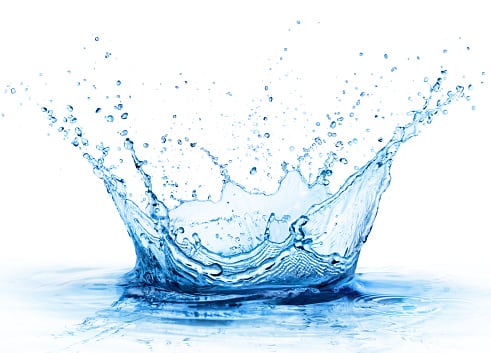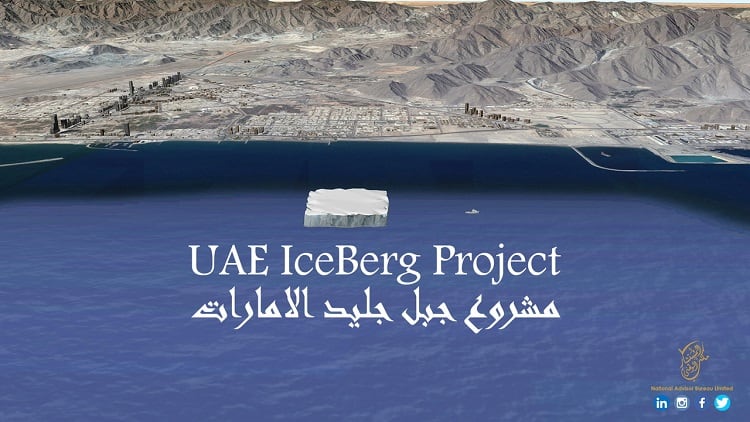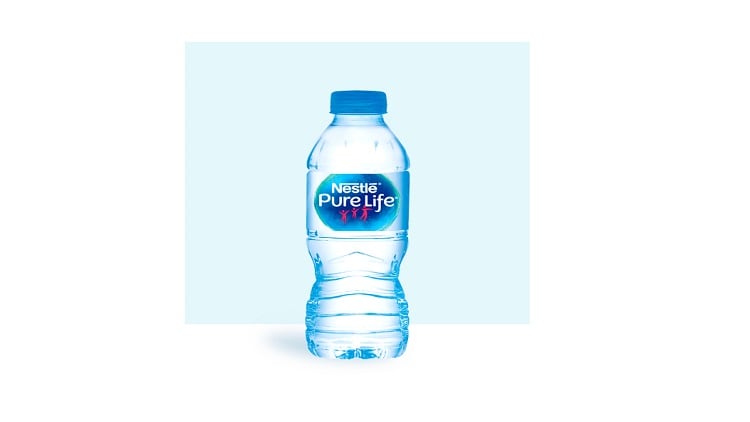The summons were in regard to a suo motu (where a government agency acts on its own cognizance) case about major environmental concerns facing the Katas Raj Temples in Punjab.
The temples made headlines over the past year because its pools dried out after the establishment of cement factories in its vicinity that drew out large amounts of water via sub-soil wells.
Locals consider the pools to be ‘holy ponds’.
Pakistan Chief Judge Mian Saqib Nisar has requested that the companies reveal data about their water usage.
"They are extracting water and selling it, someone should tell whether these companies are paying for it or not," said Nisar.
“[We need to determine whether the mineral water [sold] even has minerals in it or not.
“The water will not be available for free now as it has attained the worth of gold. […] "We will not allow the theft of water under any condition," he added.
Local governments were also questioned about the development of alternative water supply schemes for the cement factories. Nisar also instructed environmental officers to check the factories and inspect the situations on-the-ground.
In August this year, Bestway Cement’s water connection was dismantled after it failed to meet the deadline to find an alternative source of water.
“Grace time was awarded to the factories to find alternate ways for their water requirements, but they remained reluctant to do so,” said EPA Environment Impact Assessment (EIA) Director Naseemur Rehman to Pakistan Today.
Pakistan is facing drought-like conditions. The United Nations Development Programme (UNDP) and the Pakistan Council of Research in Water Resources (PCRWR) have predicted that Pakistan will reach ‘absolute water scarcity’ by 2025.
Running low on water
This is bad news for the South Asian country because it has the world’s fourth-highest rate of water use, and highest water intensity rate (the amount of water, in cubic meters, used per unit of GDP).
Basically, Pakistan’s economy is the most water-intensive in the world. It also ranks third globally in terms of water shortage.
The country’s per capita annual water availability has dropped from 1,500 cubic metres back in 2009 to 1,017 cubic metres currently – just 17 cubic metres above the scarcity threshold of 1,000 cubic metres.
"Pakistan is approaching the scarcity threshold for water. What is even more disturbing is that groundwater supplies — the last resort of water supply —are being rapidly depleted. And worst of all is that the authorities have given no indication that they plan to do anything about any of this," said Michael Kugelman, South Asia expert, Woodrow Wilson Centre.
Nestle and water in Pakistan
For Nestle, this is not the first time the company has been implicated in a water crisis in Pakistan.
In his report Drinking water crisis in Pakistan and the issue of bottled water: the case of Nestlé's 'Pure Life', lawyer Nils Rosemann detailed ‘how the production and distribution of one brand of a transnational corporation (Nestle) affects people's life in a developing country’.
The first part took a human rights approach to analyse the situation of the Pakistani poor with regard to water. The second examined the operations of Nestle’s Pure Life bottled water in Pakistan, and its impact on local communities.
At the time of publishing, the report stated that ‘Nestlé refused to react to the various attempt of the author to contact them and to discuss the findings of this research.”
The author also expressed the opinion that “Nestlé should be held accountable for its commitments with regard to human rights and sustainability”.
Later, Nestle published a response to the report, saying that: “The allegations against our business in Pakistan presented in this report represent a highly distorted and misleading picture of the situation.”
“Responsible management of water resources is one of the more important challenges facing the world today, Pakistan being no exception. For Nestlé Waters, sustainable management of the water resources we operate is part of our business.
“Independently of regulation on water in Pakistan, it is important for Nestlé Waters to manage the resource in a sustainable manner, monitoring the water consumption and water level.”




